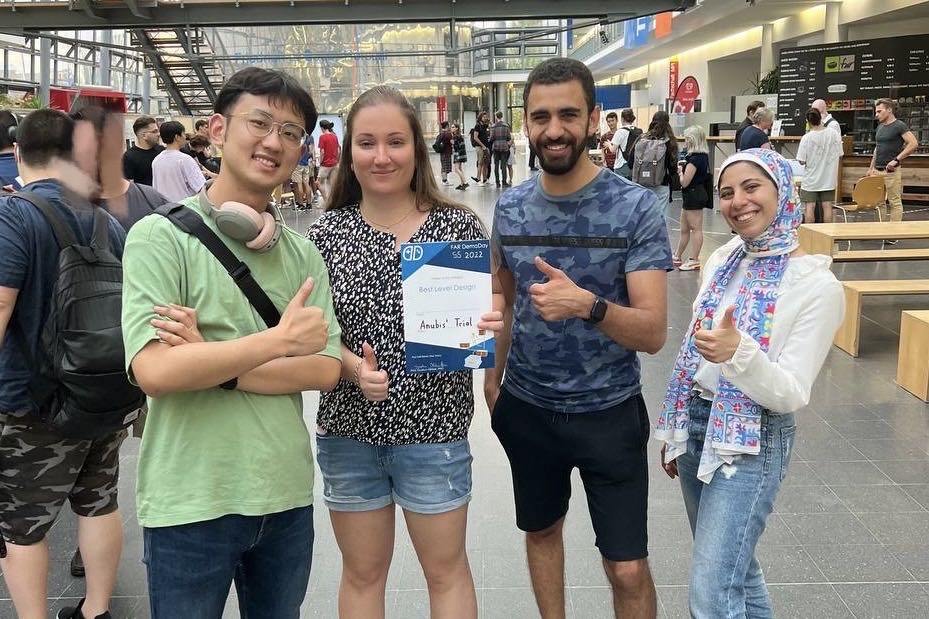Anubis' Trial
Practical Course Project: Game Lab 2022 SS
A semester project for the 2022 Summer Semester Game Lab at TUM. An ancient Egypt backgrounded dungeon crawler game with rogue-like elements.
Basic Information
Time Scale
3 months (a semester)
Team Size
4 programmers/artists
Documentation
Introduction
This project was developed by our team as part of the Game Lab course offered by the Technical University of Munich during the Summer Semester of 2022. Adhering to the theme "Reflection," the game background draws its inspiration from ancient Egyptian mythologies. Our creation is a dungeon crawler with rogue-like elements where players must navigate through procedurally generated levels, striving to survive as long as possible and ultimately defeat the final boss. The gameplay is enriched by various collectibles that assist players on their journey. The entire project was built using the Unity 3D Engine, and our team collaborated through Git.
Game Development
Concept
In the early stage, I drew a lot of inspiration from Risk of Rain 2. This allowed us to focus more on implementing the gameplay and on the time-consuming asset creation. I have always been a fan of randomness and procedural generation. I believe that if a game can continually offer players different experiences, it can greatly enhance its playability and lifespan, even if the game itself does not contain many assets or much art. This approach was particularly well-suited to our time-limited Game Lab: we did not have the luxury of time to design and create a large number of art assets or to build intricate scenes. Thus, procedurally generating random maps became our go-to solution.
Personal Contributions
In this project, I took charge of designing and implementing several key components. I was responsible for creating the UI elements. Additionally, I managed the game cycle, overseeing the flow from start to finish. I also crafted the visual effects and shaders. I animated the main character and some of the enemies, bringing them to life with dynamic movements. To accomplish these tasks, I primarily used Unity Engine for development, Blender for 3D modeling, and Mixamo for character animations. As in the other Game Lab, I was also in charge of producing all the videos, including the final trailer.
Challenges and Time Management
This Game Lab course was even one month shorter than the other Game Lab I participated in. As a result, time management became especially crucial. If our goals were too ambitious, we would risk facing chaos towards the end of the project and ending up with a final product full of significant flaws. Being the only team member who had previously participated in a Game Lab, I had learned this lesson from my past experience. Therefore, at the beginning of this project, I proactively used my experience to propose a more manageable game design plan.
Gallery







Best Level Design Prize
Our diligent workload organization resulted in a remarkable and fully realized game. Our efforts paid off at the Demo Day event hosted by the faculty of Informatics. Among the dozens of projects that participated in the event, our game stood out and was voted as the only project to receive the Best Level Design award. Through a semester of hard work, our collaboration, solidarity, and the quality of our final product were recognized by many, making this the best outcome of this precious experience.
